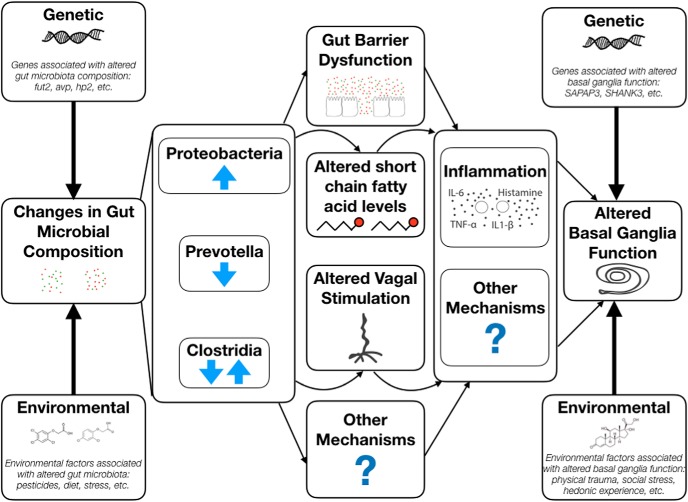Figure 1.
Gut microbial alterations occur within the context of genetic and environmental factors that shape basal ganglia-associated disease susceptibility. These host factors affect both gut microbial composition and basal ganglia function. Common microbial alterations associated with increased disease risk include increases in Proteobacteria, decreases in Prevotella, and alterations in Clostridia, which are all associated with increased gut barrier dysfunction. Other risk factors, such as altered short-chain fatty acid levels, increased vagal activation, and other mechanisms (e.g., the release of other bacterial metabolites) may also result from gut microbial alteration. Increased systemic inflammation and neuro-inflammation are common endpoints of all of these alterations, but other gut-to-brain mechanisms also contribute to basal ganglia disease etiology. Ultimately, gut-derived factors that alter basal ganglia function interact with other preexisting genetic and environmental susceptibility factors to shape specific disease outcomes.

